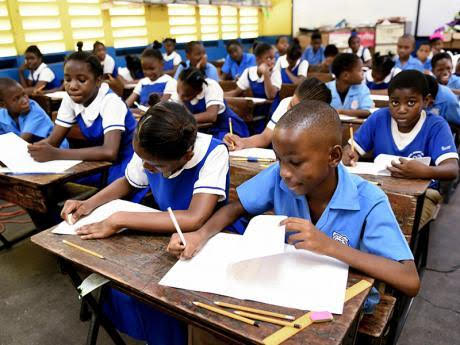Words tossed around nowadays by environmentalists include, of course, environment, ecology, ecosystem, sustainability, resilience, biodiversity, and global warming among others, so let’s look at a few.
Our environment is everything we breathe, eat, see, hear, feel, use and touch. It’s the grass or dirt or concrete under our feet, the breeze bringing the smell of the sea, or the dump, or the fire. It’s the sound of traffic, the river, the ocean waves, wind singing in the trees, or howling through wood shutters. The song of the zenaida dove “What am I to do”.
The sound system that keeps you awake. It’s the smell of rain on a hot street, or the roar of it on a zinc roof. It’s the taste of the mango, just picked; the breadfruit roasted on charcoal; cool, fresh, clean water. It is what is close to where we sleep, where we work, where we play. It is the quality of our lives.
If our water is tainted or our air is polluted, we become ill. If our soil is depleted, we go hungry. If our mountains are denuded, we suffer from floods and mudslides. If our coastline is robbed of coral reefs and mangroves, storm surges inundate us.
So environment is not a buzz word, really, it is an everyday reality for every single person alive.
Ecology is that relative of biology, dealing with the relationships and interactions between living things and their environment, including other living things. So if, for example, you are studying a wetlands area, you would look at the food chain and how all the animals and plants survive together. If healthy, they are in balance, no single organism proliferating at the expense of another, a successful ecosystem. Living things interact with their surroundings; a cactus in the desert may provide shelter and sustenance for birds, and birds may disperse their seeds. The cactus impacts its environment by releasing water vapour and oxygen into the air around it which changes the composition of that air. If humans skew a balanced ecology by introducing or removing something the result can be disastrous. Study is ongoing and vital as humans are wholly reliant on ecological goods and services to survive.
Sustainability is simply avoiding the depletion of natural resources, maintaining an ecological balance. It means choosing where and how one operates a business, a hotel, or our lives. It should not endanger the balance existing, and we should find out all we can before launching any endeavour. Two errors have emerged in scientific thought. The first is that ecosystem responses to human use are predictable and controllable, the second has been that human and natural systems can be treated independently. Scientists have discovered that neither of these is possible. Sustainability means that nothing is depleted or damaged, or that damage is not compounded, that in ten or twenty years the entity and its environment are not critically deteriorated.
Resilience is argued in a report by the Swedish Government to the World Summit on Sustainable Development in Johannesburg in 2002, using that concept which is the capacity to buffer change, learn and develop and is still argued. But thinking changes as learning advances and resilience has been demoted. Island and indigenous communities are often held up as examples of resilience, but it is now thought unfair that they take the full brunt of environmental change, the more so today with rising sea levels and the warming of our planet.
Biodiversity is the variety of plants and animals existing everywhere. The greater the variety, the healthier the world is. Recently a group of highly respected scientists predicted that oceans will be empty of fish by 2048 if nothing is done to stop overfishing and pollution. Thirty-nine per cent of food fish have diminished by 90%; also vital is that ocean species filter toxins, reduce algae and red tides.
Global warming effects climate change. The industrial revolution has led to huge emissions of carbon dioxide, methane and nitrous oxide, known as “Greenhouse Gasses” which collect in the Earth’s atmosphere, so infrared energy radiates back down to the Earth and raises temperatures. The predictions are variable and depend on how quickly and how well we can reduce emissions but range from 0.5 to 8.6 degrees Fahrenheit with a very large range of catastrophic consequences including a sea level rise of possibly as much as six feet by the end of this century. Climate change ramifications are too many to be enumerated here.
Environmental education has to be somewhat philosophical in that it not only addresses practicalities and scientific fact but also, morality, aesthetics and politics. Examples simply spring into the mind.
And knowledge increases exponentially; it behooves town and country planners to keep an expert on staff and in turn the expert must undertake continuing education so as to keep abreast of the knowledge.
When Rachel Carson wrote “Silent Spring” in 1962 (amazingly, 57 years ago) DDT was being sprayed for pest control, crops were tainted, animals died and people sickened. The book sold six million copies in the USA alone, was named one of the 25 best science books of all time and was translated and read all over the world. It marked a complete turnaround in agriculture and industry. But obviously, it is still not enough.
In truth, we all need to be conservationists.
We have one single planet. We have not yet found a suitable other to which we might easily migrate. It is being badly damaged and we are abusing our small corner of it. We kill our places of beauty. We cannot control how foreign countries treat their environment, we can perhaps influence them somewhat but all we can truly control is our own back yard.
When all our citizens understand the consequences of dumping trash in gullies (make dumping trash period, easier, it will help), when we are fined for violations, when comprehension makes regulation easier to enforce, when our environmental laws and guidelines are adhered to without fear or favour, when we overcome habit and history and together take pride in our Jamaica, then there will be a glimmer of hope for our future.



